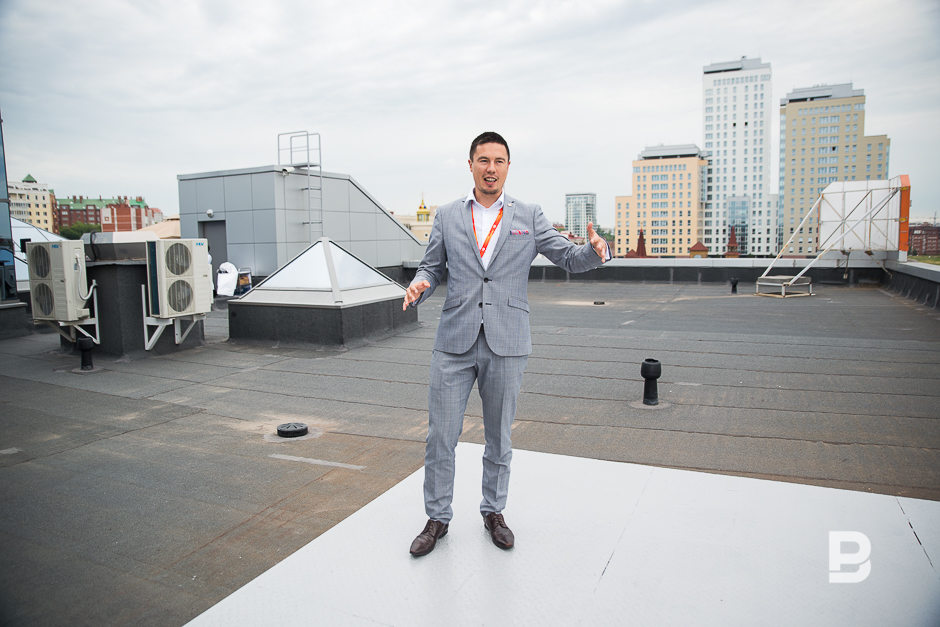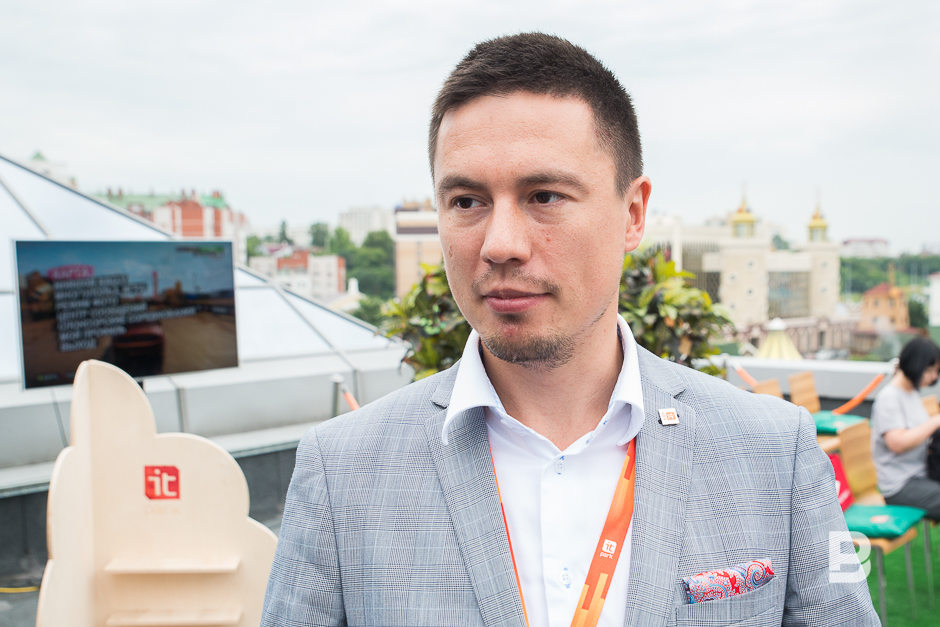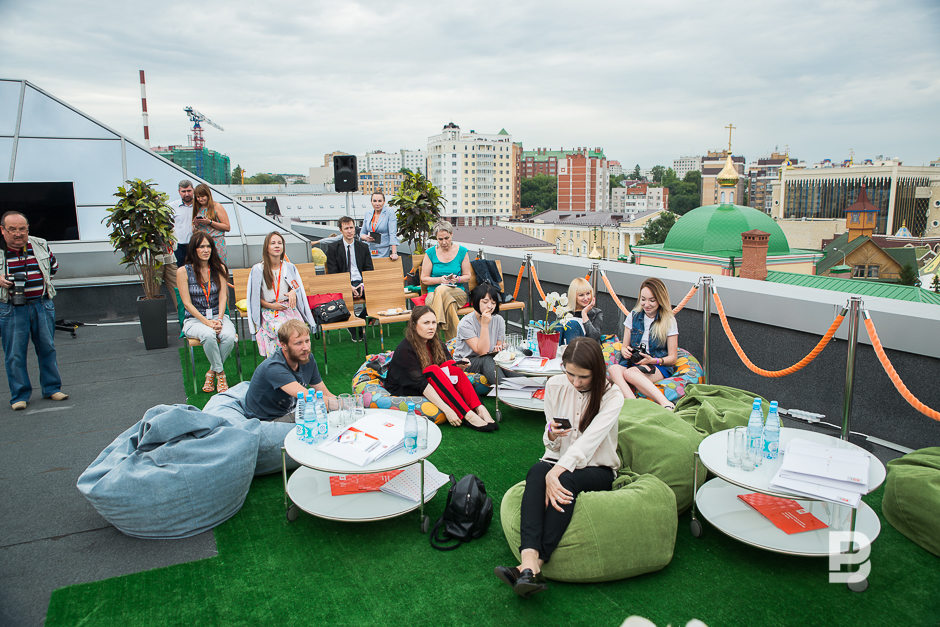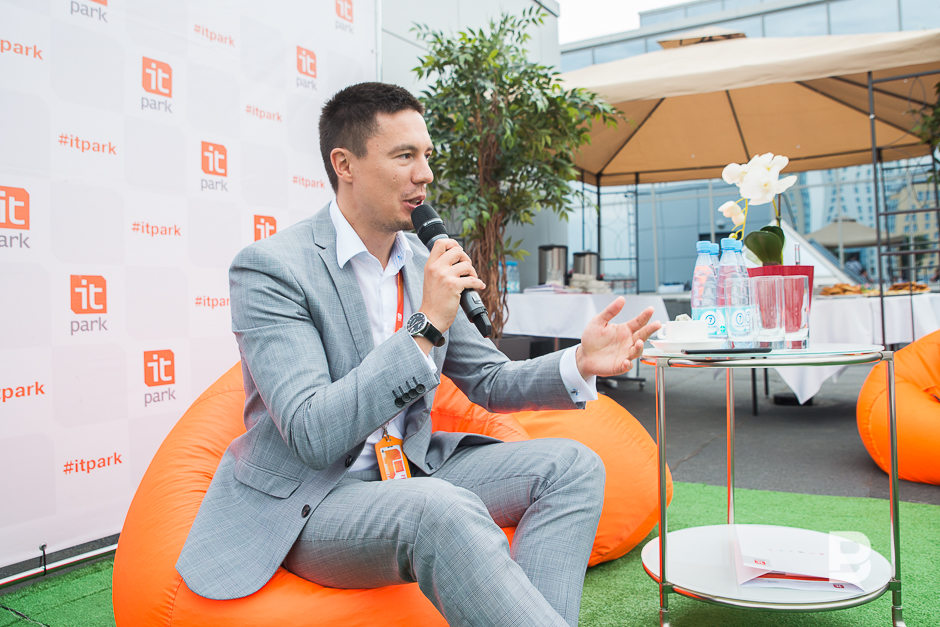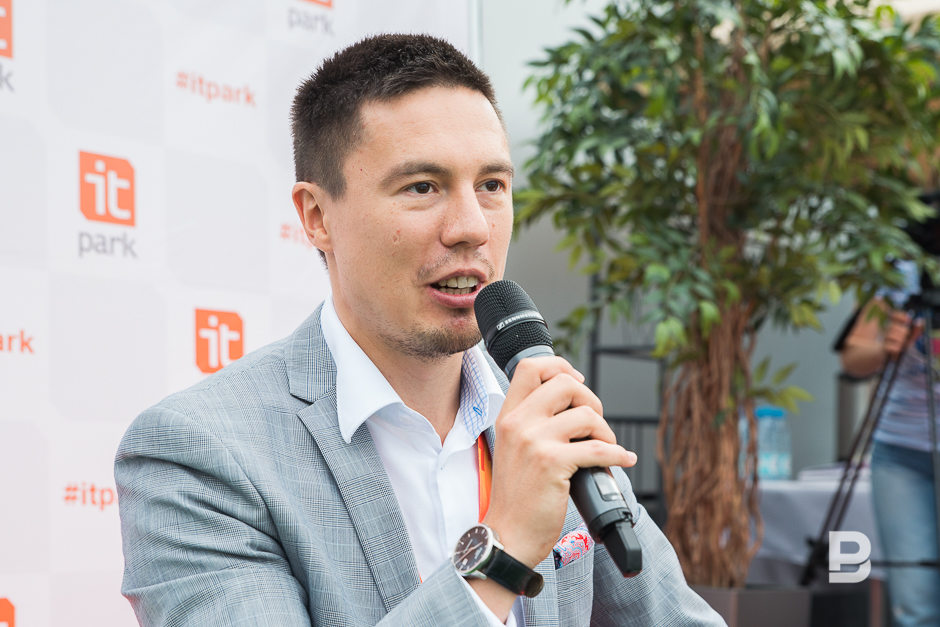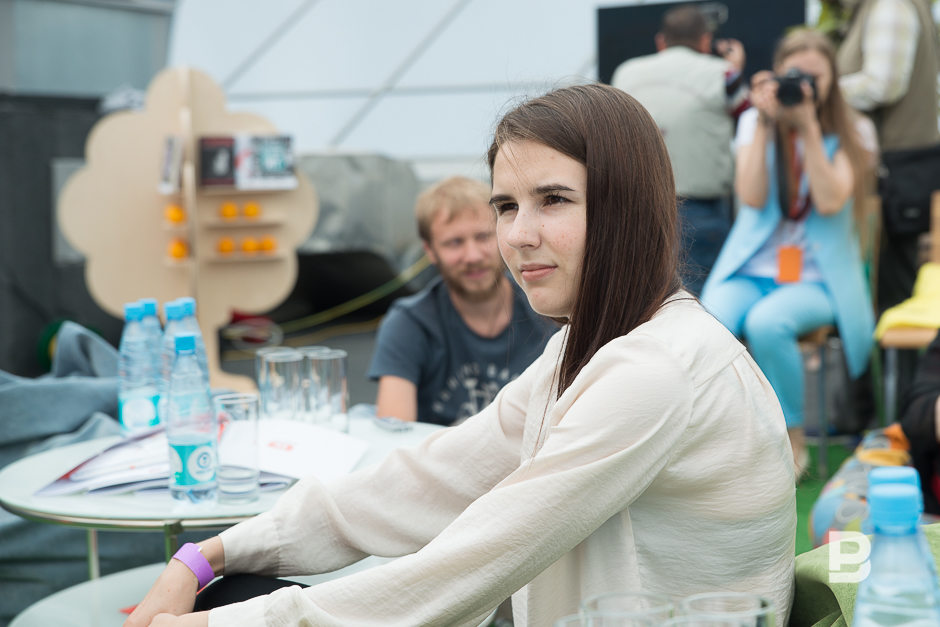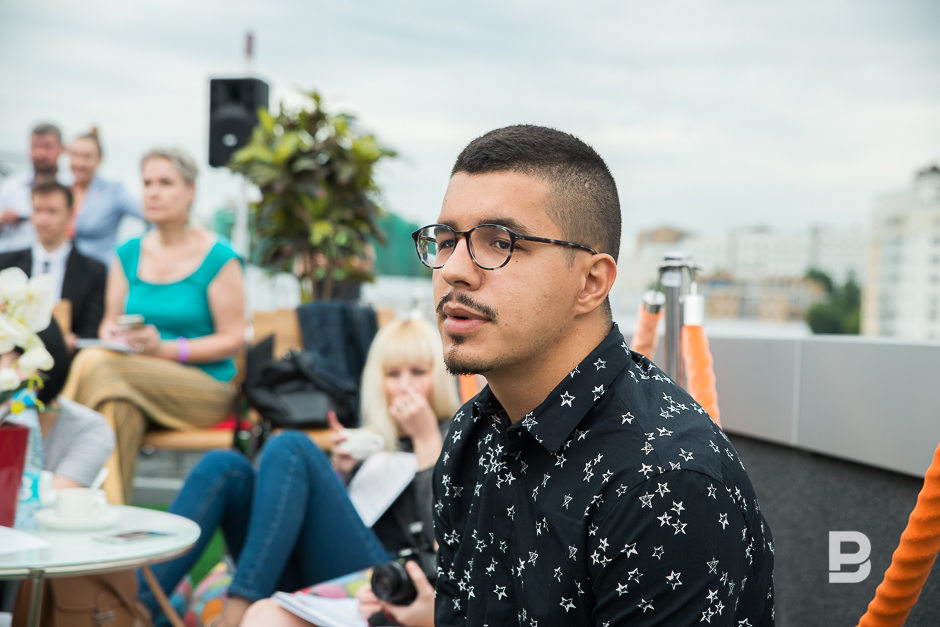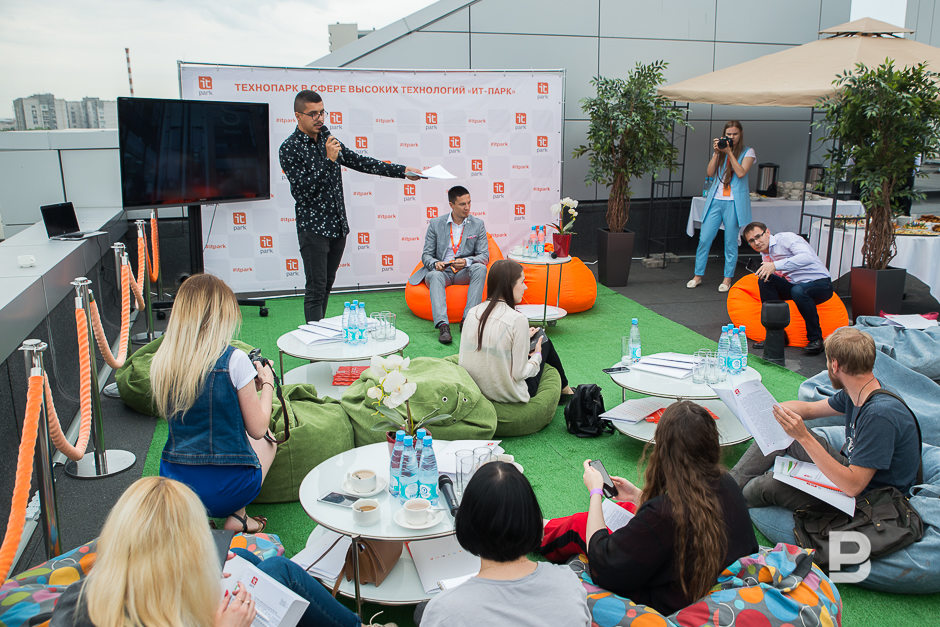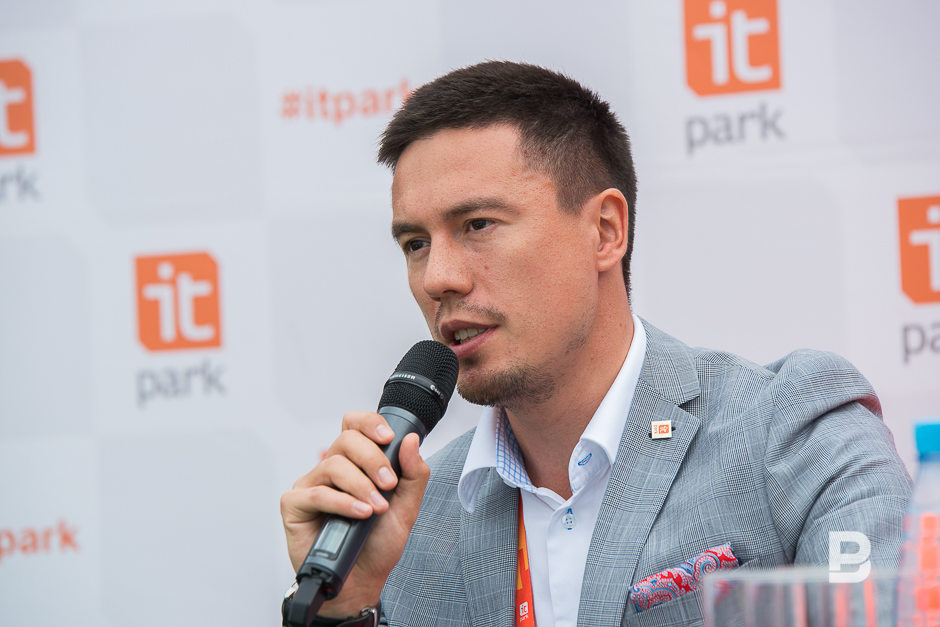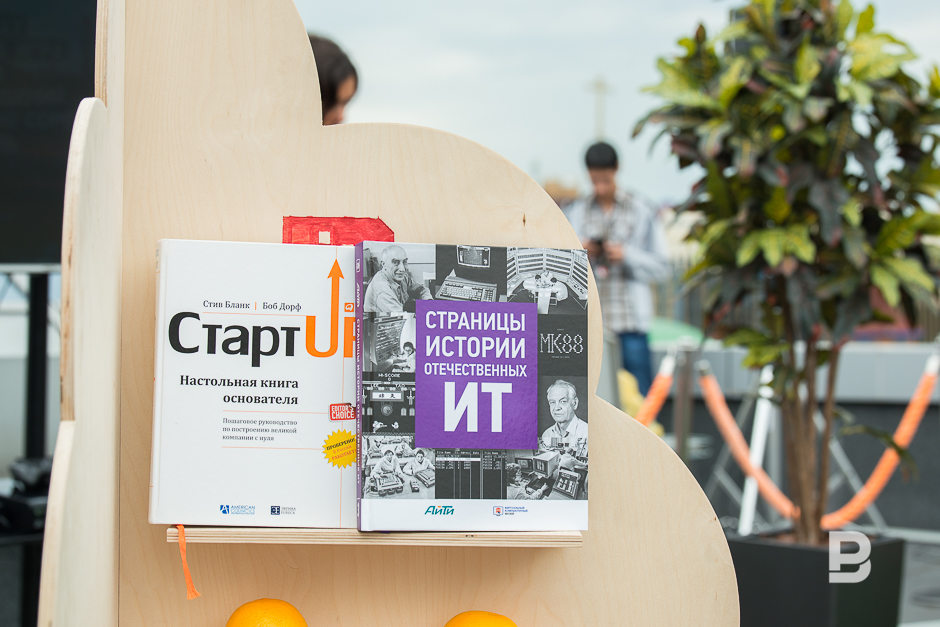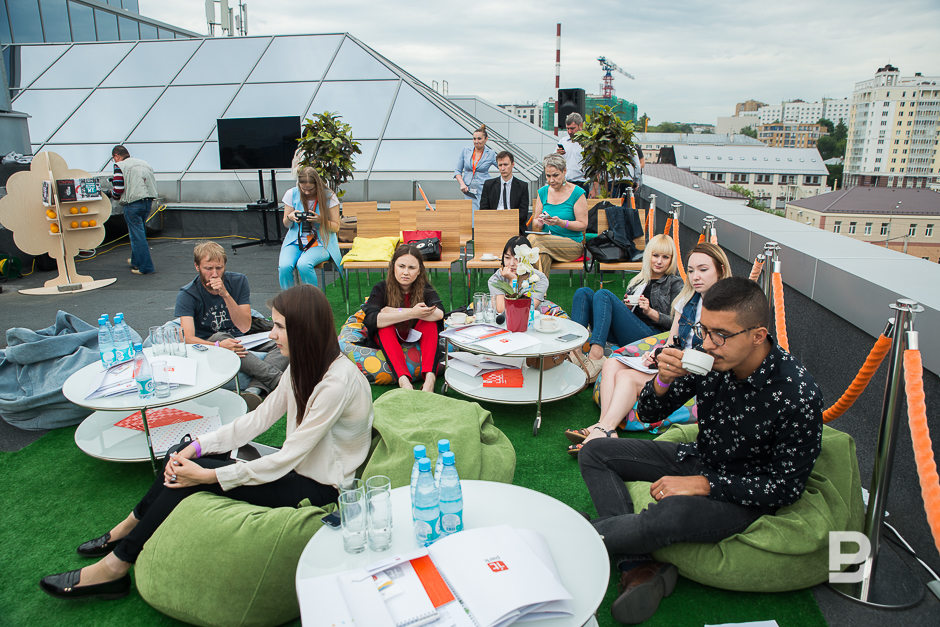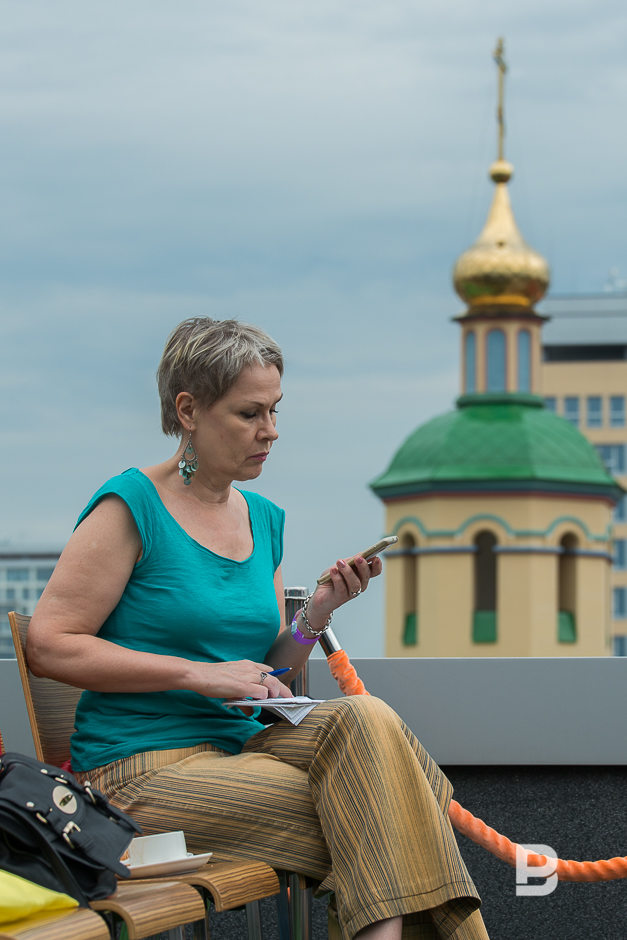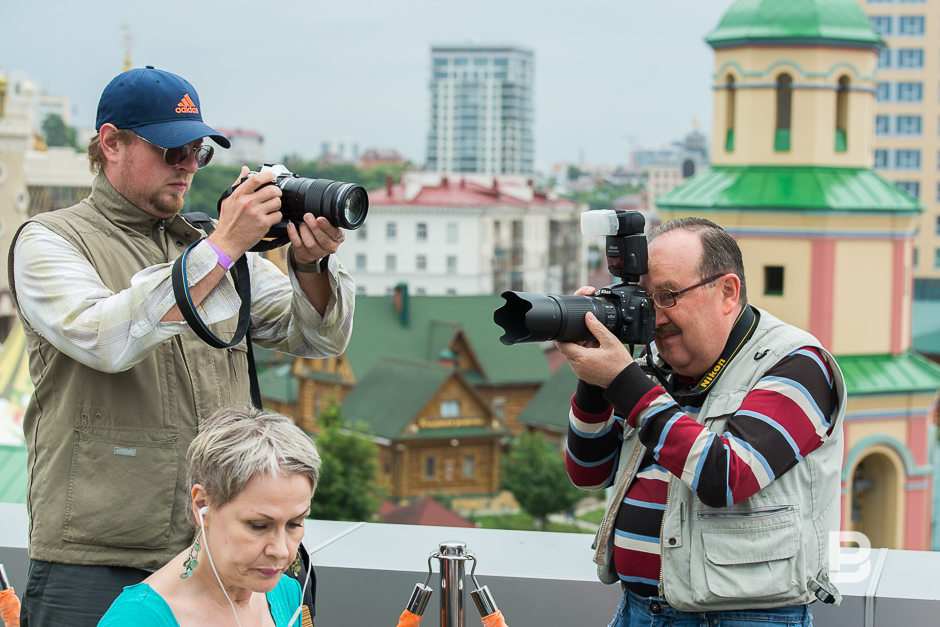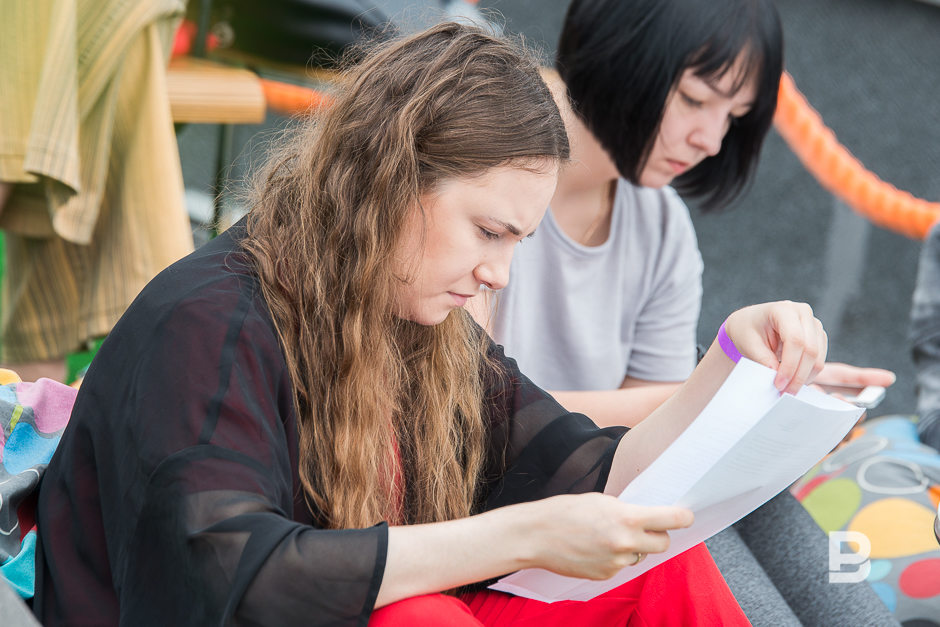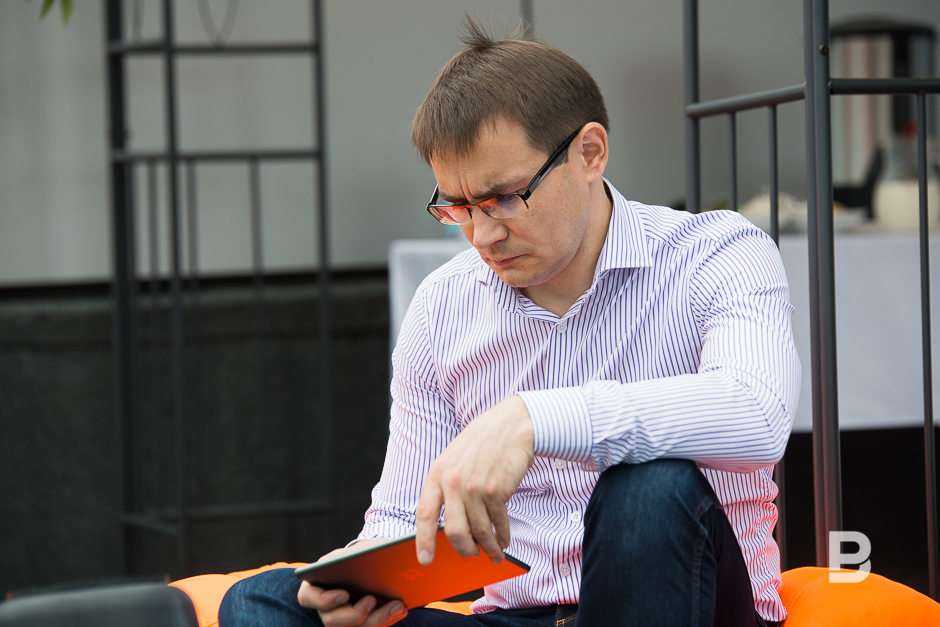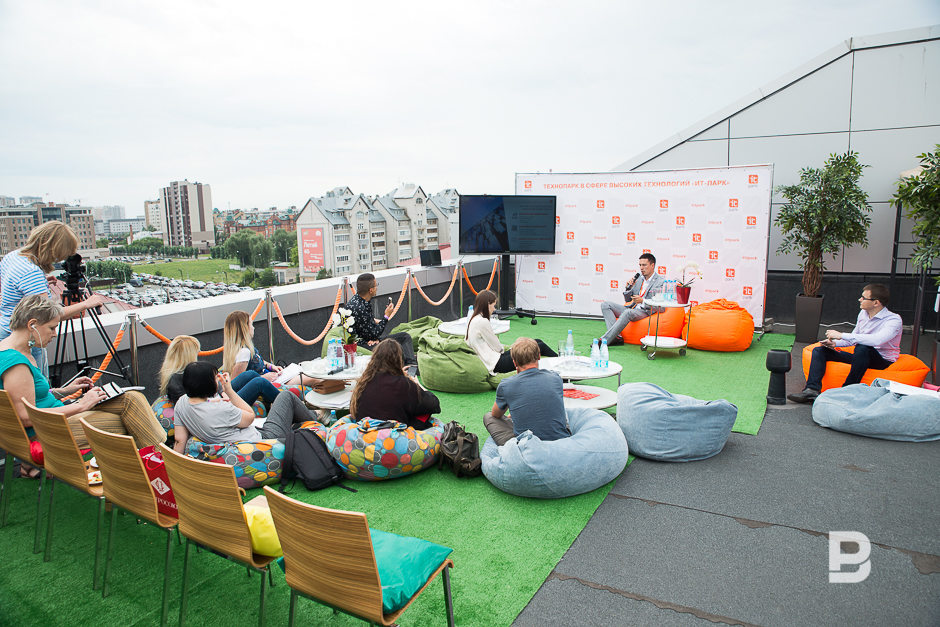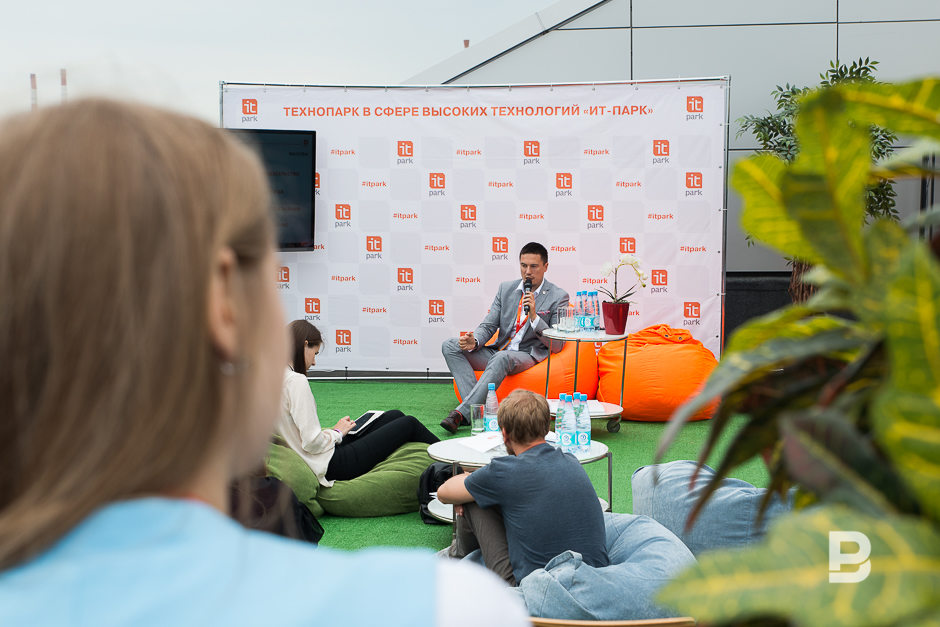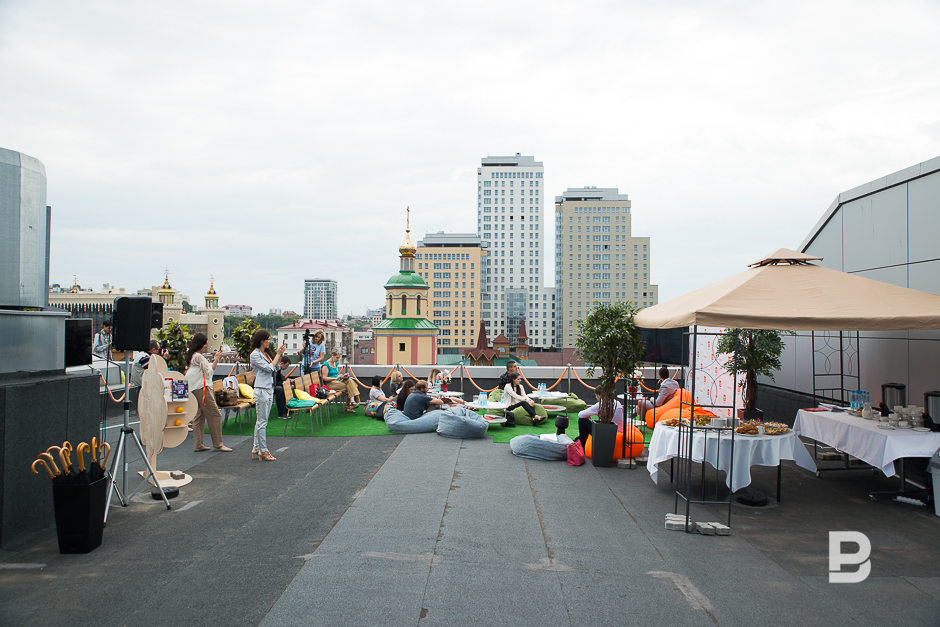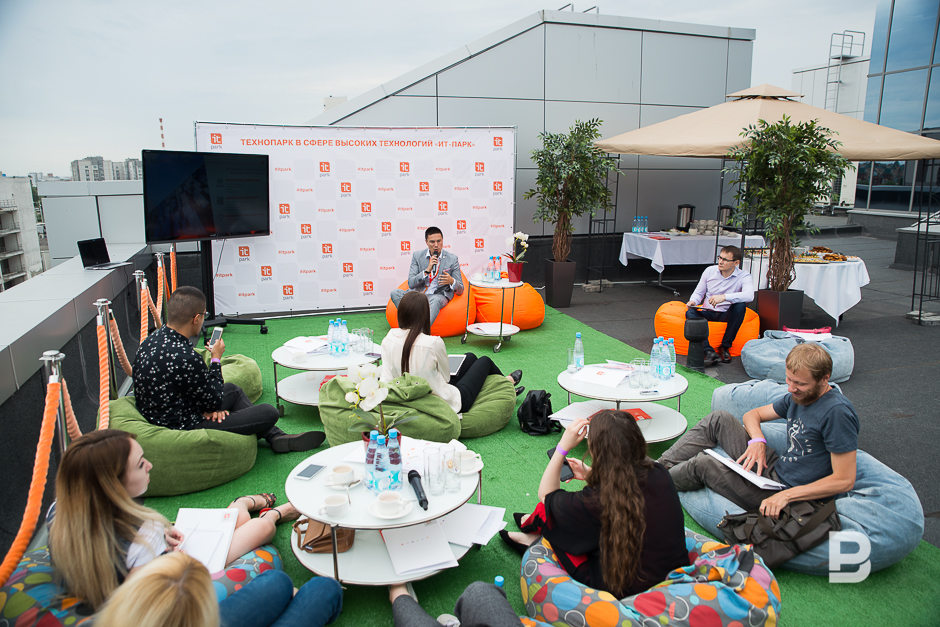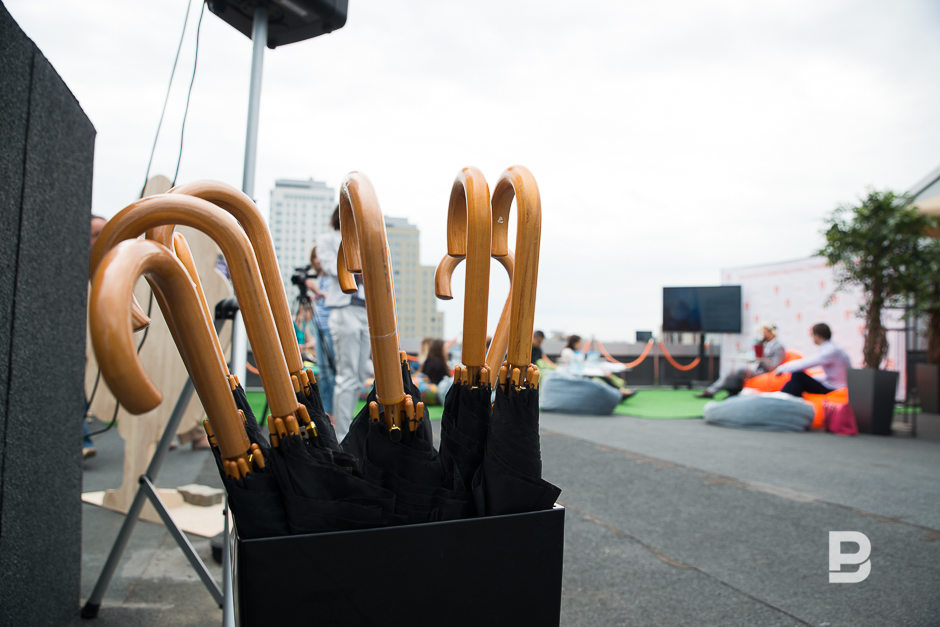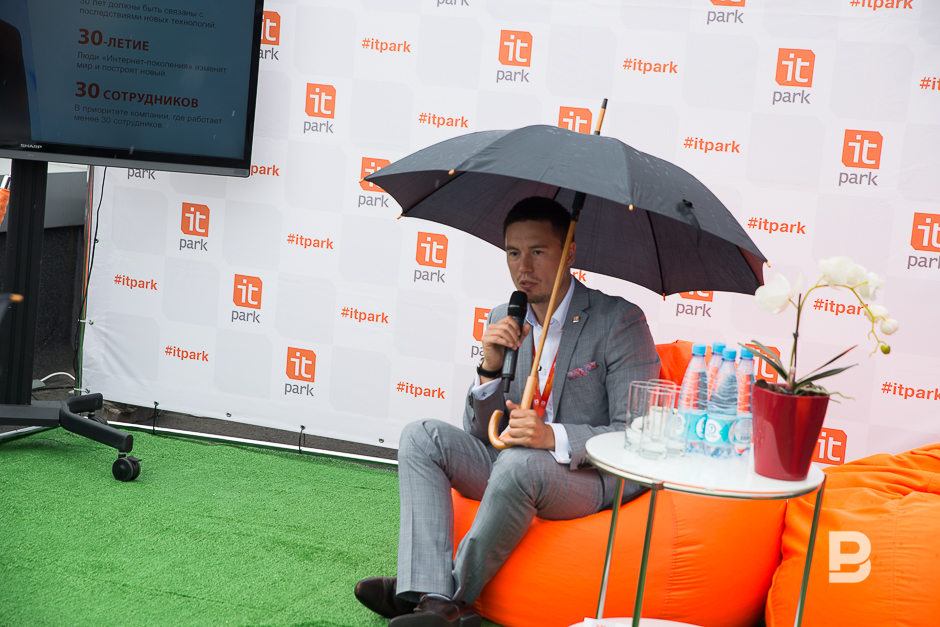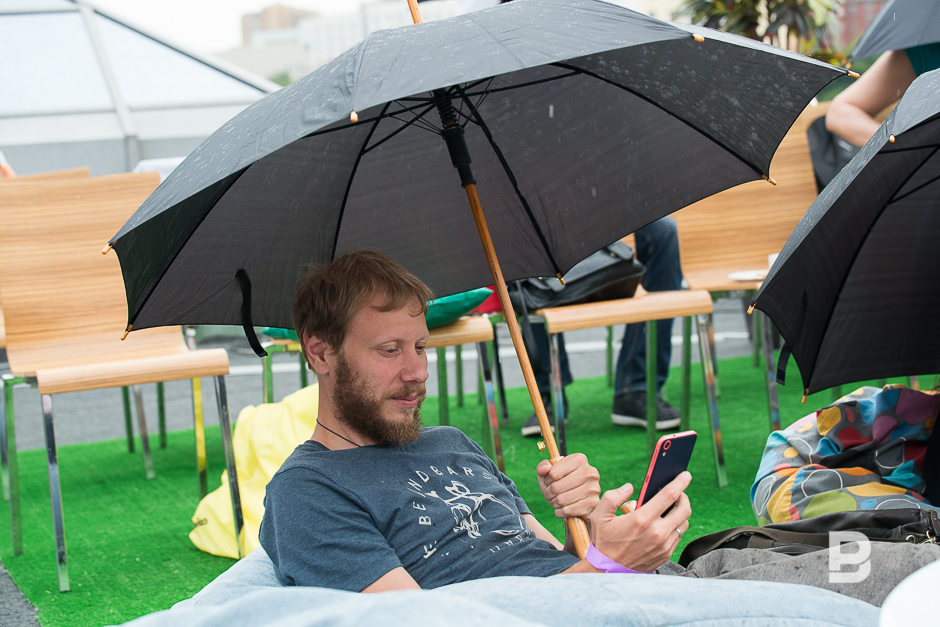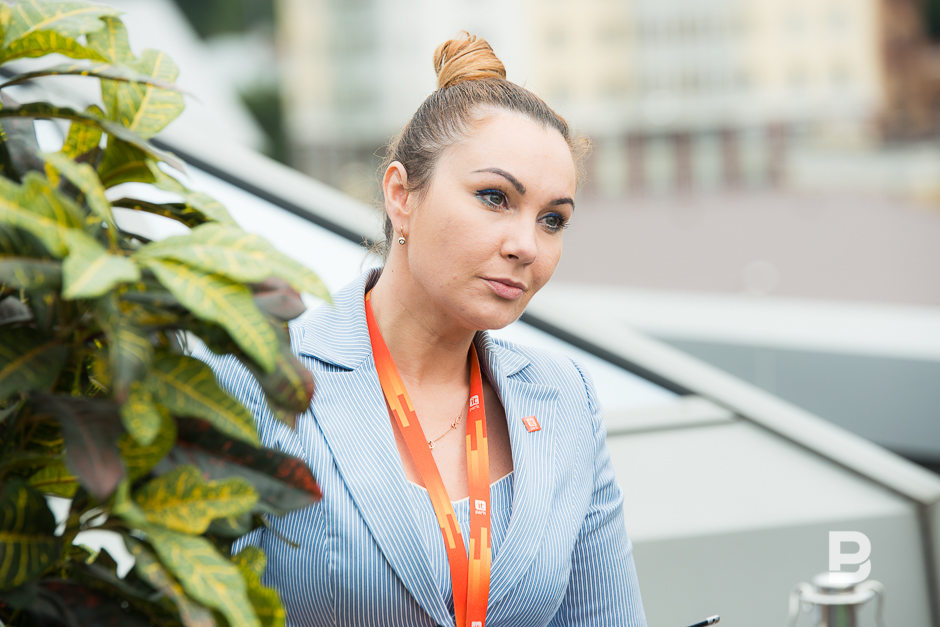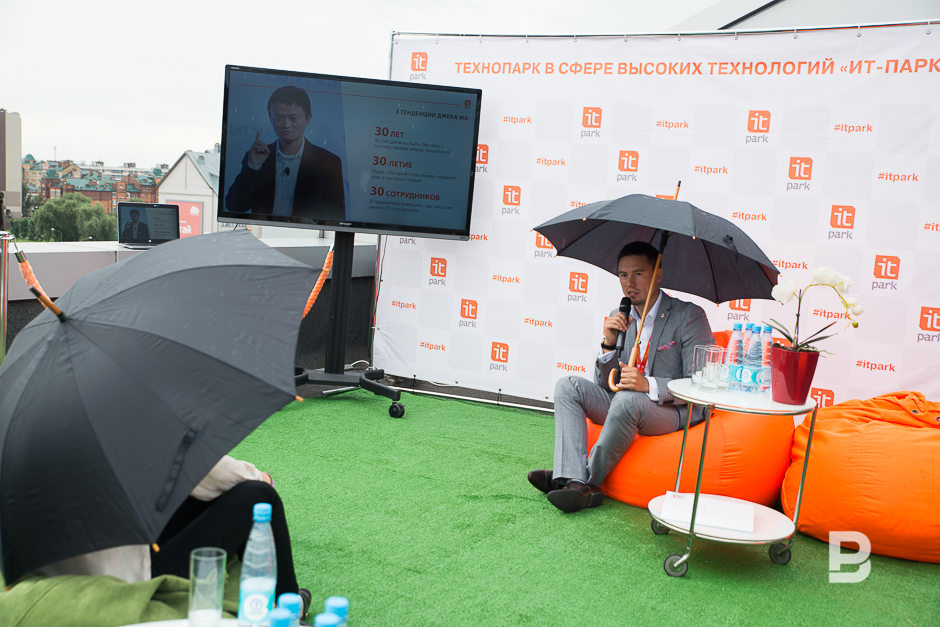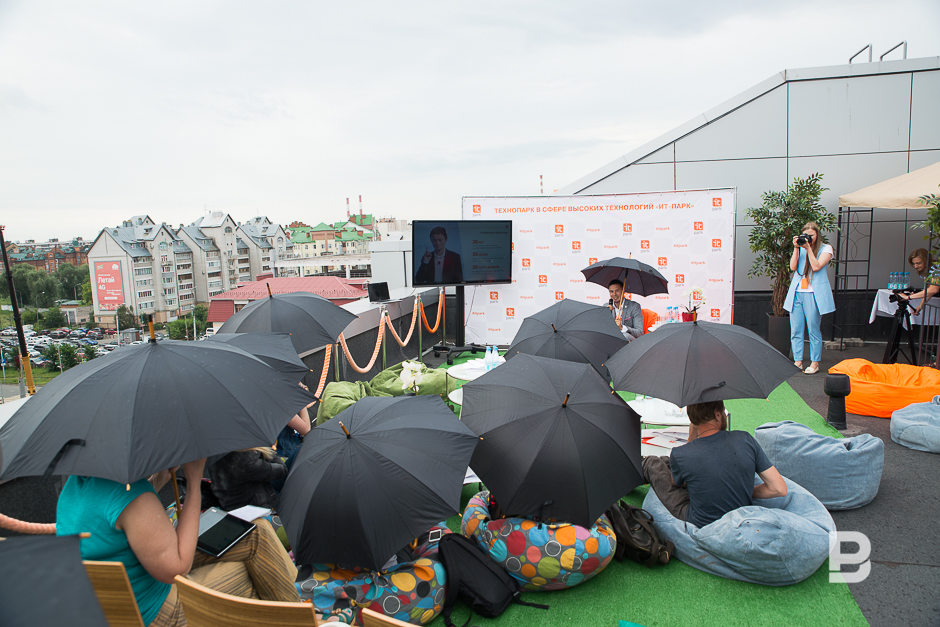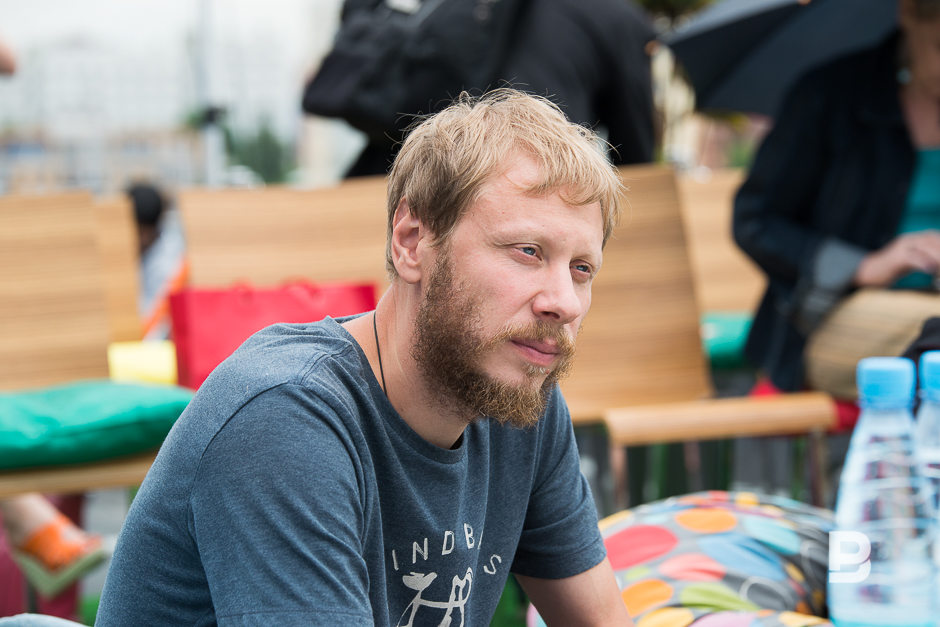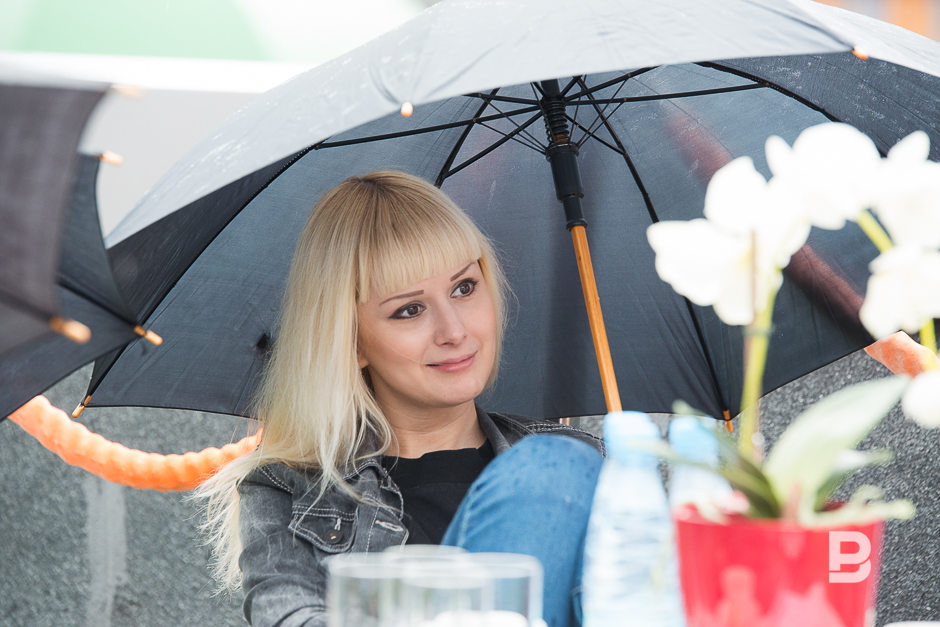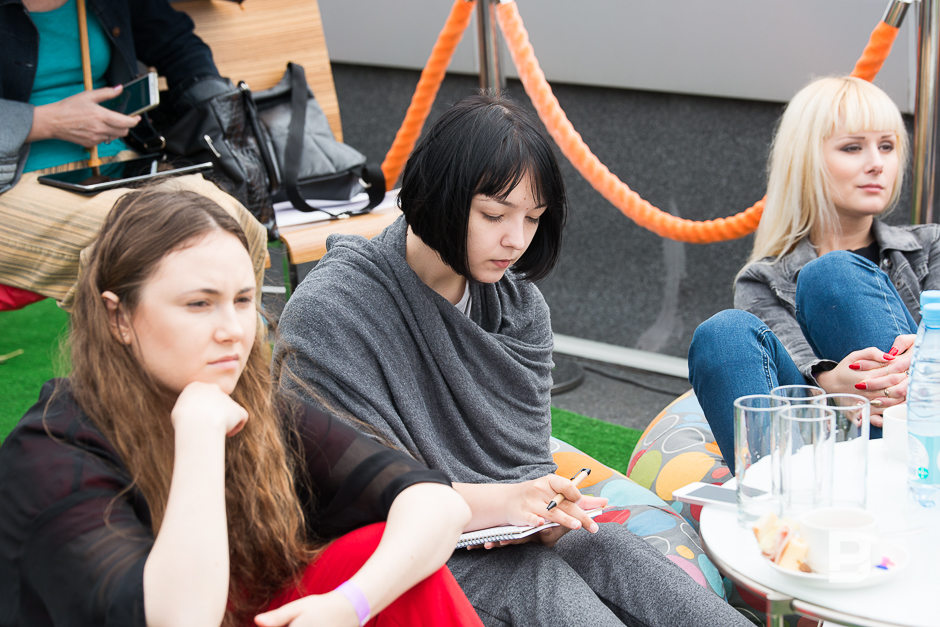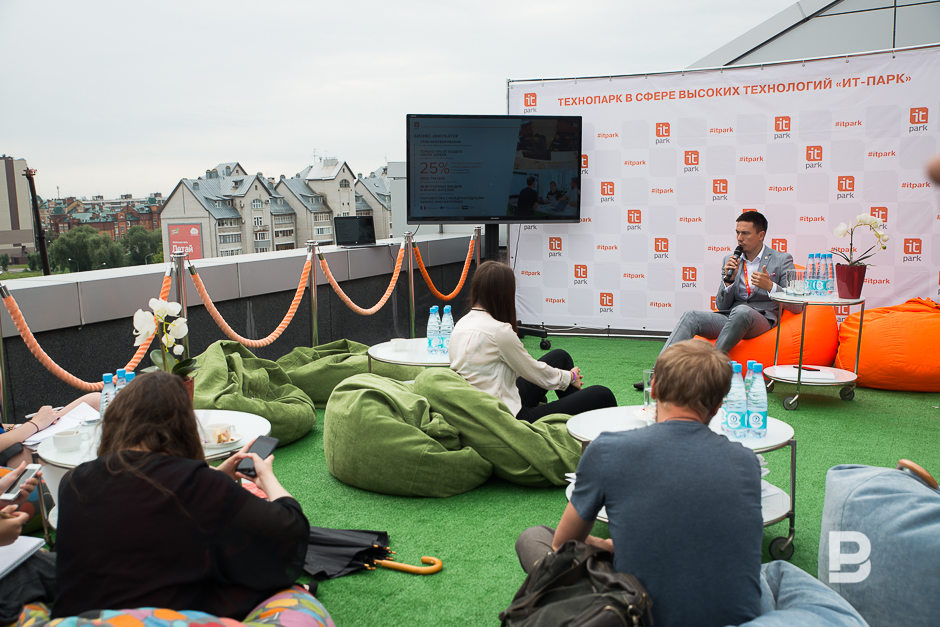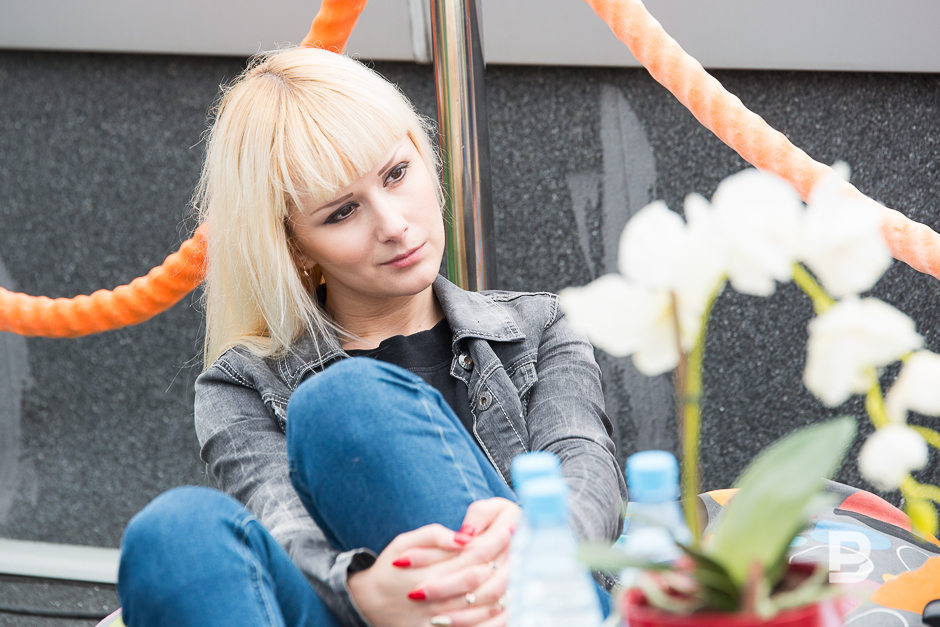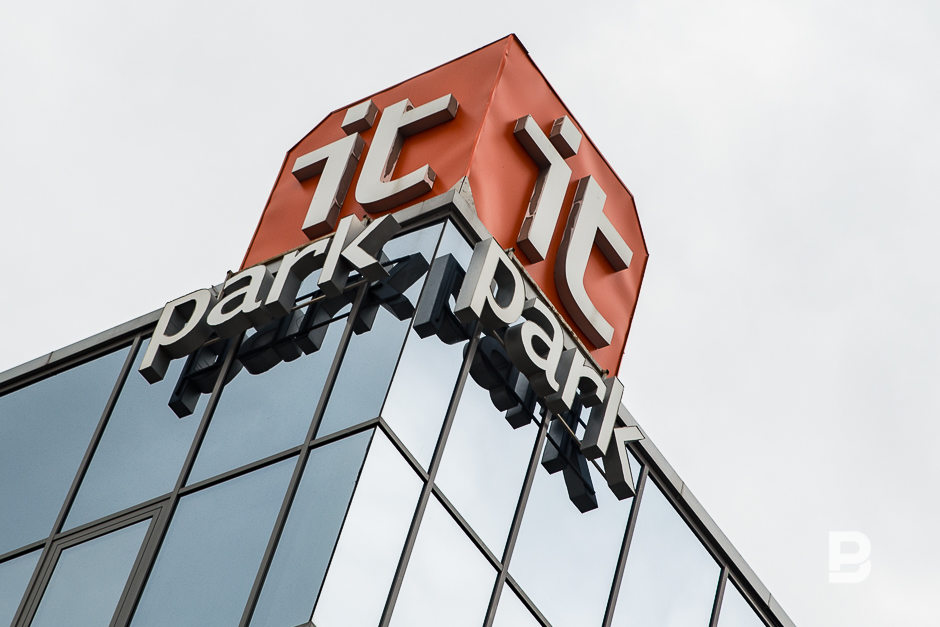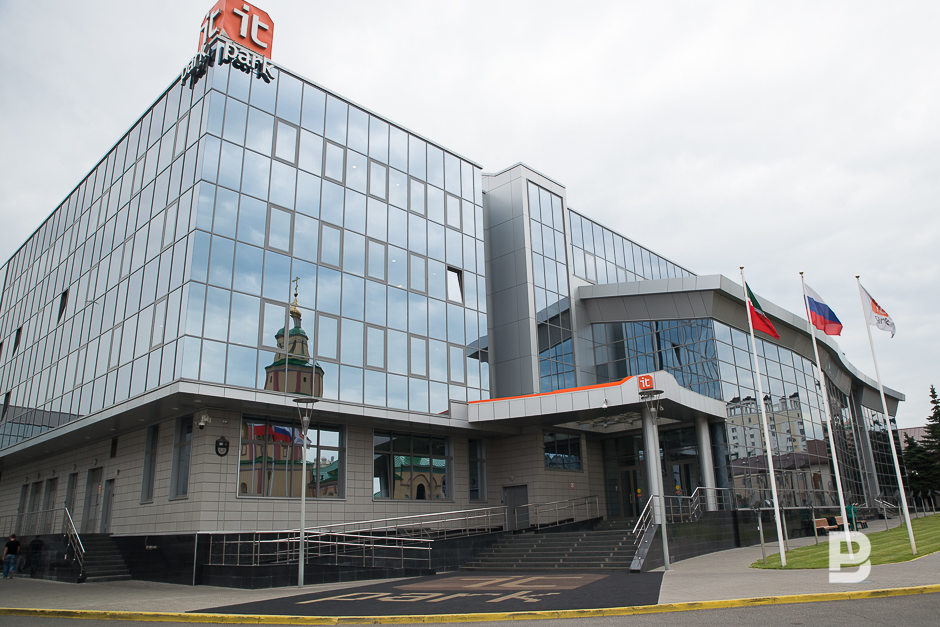Anton Grachev: ''Closing IT market and following the ''Chinese way'' won’t work out here — there will be a storm of indignation''
Almost a third of Kazan IT-Park’s revenue is the rent of space, a third – the data centre, and the rest — the hotel, coworking, shares in other companies
Director of Kazan IT-Park Anton Grachev has recently met with reporters to discuss a wide range of issues — from the interim results of the work of the business incubator and the revenue of the IT Park residents to a fall in activity of venture industry in Russia. Besides, the correspondent of Realnoe Vremya managed to figure out what factors hinder an emergence in Tatarstan of start-ups, by magnitude comparable to Facebook or Telegram, what are the prospects of state messengers and domestic search engines and whether it is possible to achieve total deanonymization in Runet.
''Last year, it was 9 billion, but there was criticism from Rustam Minnikhanov''
The meeting with the head of techno park Anton Grachev took place in the ''place where no journalist has entered'', namely on the roof of the Kazan IT-Park — next door to the data center that houses, among other things, the entire public sector of e-government of Tatarstan, as well as some of federal ones such as the Ministry of Health and the Ministry of Finance of the Russian Federation.
First, the director of IT Park boasted of the revenue of the management company — last year it amounted to 410 million rubles (for comparison, in 2012 it reached about 120 million rubles). The net profit amounted to 45 million rubles. As Grachev explained, approximately 30% of generated due to the space rent, 35% — the data centre, and the remaining 35% is divided between other divisions (the hotel, the centre of the intellectual property, IT Academy, coworking, shares in other companies and so on).
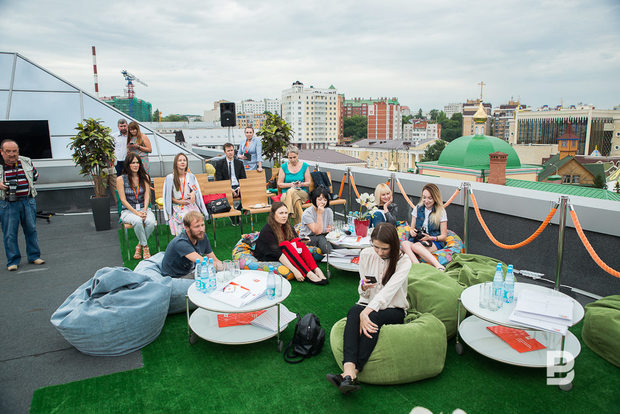
If to speak about the companies-residents of IT Park, in six months they managed to increase their revenue by 15%. This was achieved thanks to the companies that are growing, including in the field of sales abroad. The main speaker of the event also added, ''This year we have exceeded 10 billion rubles, taking into account the pace in the first half of the year, but it's not the dynamics that we would like. Last year, it was 9 billion, but there was criticism from Rustam Minnikhanov, which was objective — from 2015 to 2016, we grew by only 9%.'' Anton Grachev explained such dynamics by the fact that many residents have ceased to record the income in Tatarstan, selling products abroad.
Also, the director of IT-Park uncovered the statistics and indicators of the business incubator. Every year there they receive 100-150 applications, however, only 7 of 10 projects manage to enter the incubator. The rigidity of the selection is determined by the fact that experts try to select those ideas that can be implemented during a year. According to Grachev, the projects are submitted several times, and one of them managed to enter only after the fifth attempt. About 25% of the projects after a year of incubation start to earn money. As on 1 June, residents of the business incubator are 40 startup projects, the total amount of attracted investments for 6 years has exceeded 625 million rubles.
''It is a headache for us today — Russian investors do not invest''
In his speech, Anton Grachev complained of a sharp drop in activity of venture industry in Russia, which has been observed lately. According to him, it is now one of the key challenges for IT sector.
''It is a headache for us today — Russian investors do not invest. Two years ago the situation was much better. The political background is very negative against Russia. Many do not want to deal with a project, which started in Russia today, unfortunately. Now even the Russian funds that used to actively invest in Russia, all their transactions in 2016 were not in Russia — they were in Ireland, Luxembourg or Cyprus. This is the reality with which we must fight,'' said the speaker.
Against this background, Tatarstan IT Park by the end of the year decided to launch its own venture fund that will be formed at the expense of the management company of IT Park, ''The money we have accumulated as a revenue of the management company, we will allocate for the development of companies. I won't call the amount yet, but they will not be ''global.''
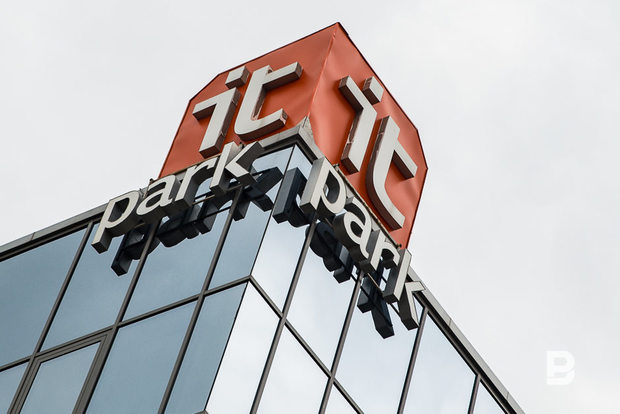
Besides, the most successful projects of IT Park were presented at the meeting. The revenue from most companies range from 1 million to 15 million rubles, however, the ranking has also more modest figures: for example, the company Nexmed (the cloud-based system for automating of medical laboratories, introduced in the system of Tatarstan Child Republican Clinical Hospital) with revenues of 658,000 rubles as of June 2017.
''Without it, there will be no ''Facebook'' — one shouldn't cherish illusions''
During the presentation of Anton Grachev, the correspondent of Realnoe Vremya came up with a logical question, ''Why, in spite of such positive dynamics, does Tatarstan have no project comparable in scale with the brainchild of Mark Zuckerberg or Pavel Durov?'' As it turned out, under a rather rosy picture of the rapid development of IT sector there lie a lot of problems.
''We all want in Tatarstan there was such a big player and a huge taxpayer, but in IT there are some nuances. First, such business can be created anywhere where there's a socket and the Internet — this can be any point of the world. Given this circumstance, it is necessary to create such conditions that would motivate people to establish and consolidate a business here. Many go for comfort because in IT there are only people — no machines, only a person with a computer,'' began Grachev.
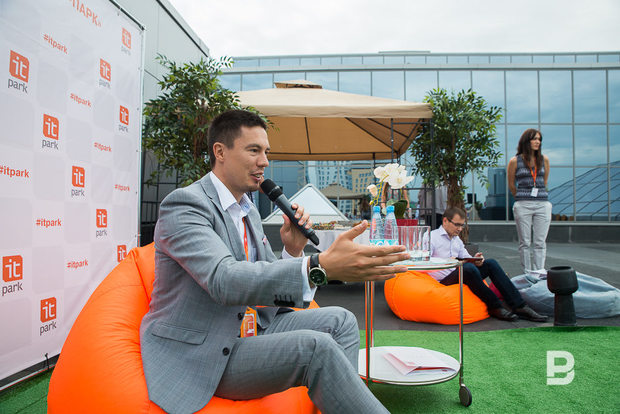
It is necessary to create such conditions that would motivate people to establish and consolidate a business here. Many go for comfort because in IT there are only people
According to the director of IT Park, to develop start-ups for grant money is a utopia. And it is extremely important to create favourable conditions for venture investors, but in this respect, there are serious drawbacks in the legislation.
''There are no norms of English law that protect the rights of investors. If he invests money in a project, and he goes bankrupt, the investor is the creditor of the first stage, but in our country — the third. Why take a risk? Without it, there will be no ''Facebook'' — one shouldn't cherish illusions,'' said Grachev. ''We have imperfection of the legislation in the field of intellectual property rights. According to our rules, you can't protect the algorithm: conditionally, if to make a change in one line of code, it automatically becomes a new software product according to our standards. But in the States, the algorithm is patented easily.''
As a positive example, Anton Grachev cited the Belarusian model, which, in his opinion, is very convenient for IT business. They have the park of high technology, which is directly under the president. Its residents fall under the ''super system of taxation'' — benefits for all taxes, including personal income tax. A resident can be any company registered on the territory of Belarus. According to the director of IT Park, this allowed Belarus to launch high-profile and large-scale projects such as in WoT, MSQRD and Viber.
''From the point of view of the creation of alternatives to global giants — it is a utopia''
In the interview with Realnoe Vremya, the director of IT-Park assessed the prospects of the famous project ''State messenger''. A number of state messengers selected by the Institute of Internet Development (IRI) are already being tested in several offices and cities of Russia. Initially, the development and implementation of domestic competitors giants like WhatsApp, Viber and Telegram, has caused ambiguous assessment of experts.
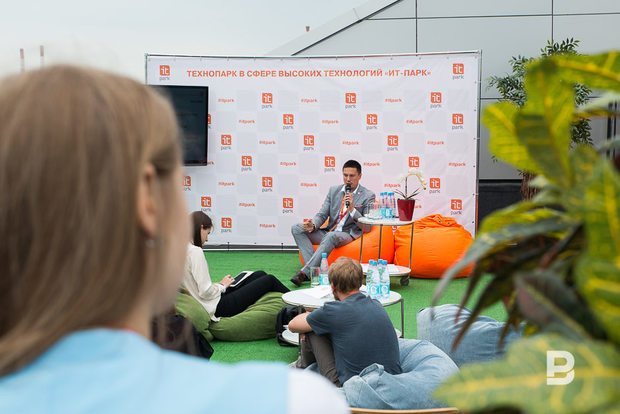
China has its own messenger, which is technologically ahead of WhatsApp and Telegram, but to create something similar, while not closing WhatsApp and Telegram — it automatically means a tiny number of users
''I have two opinions on this: we are realizing some threats in the geopolitical arena and we want to prevent data loss, including of civil servants – it is a path which justifies the creation of state messengers. This is the path that China has chosen. However, from the point of view of the creation of alternatives to global giants — it is a utopia, '' said Grachev. ''China has its own messenger, which is technologically ahead of WhatsApp and Telegram, but to create something similar, while not closing WhatsApp and Telegram — it automatically means a tiny number of users, though perhaps tens of thousands of people will be forced there, but still...''
Our interlocutor also spoke about the domestic search engines, developed by Rostelecom and cost billions of rubles, but have not found its users — we are talking about the search engine called Sputnik.
''It is no problem to create a domestic search engine — the question is in the results. If someone expects that it will surpass by performance Yandex or Google — it is not serious. If there is a segment of users who must use only it, then it is justified. The same thing is with messengers and with the programme of import substitution of domestic soft. Closing the market and following the ''Chinese path'' won't work out — there will be a storm of indignation,'' says Anton Grachev.
It is worth noting that in the last few months the ambiguous domestic development have faded into the background — now all the users' attention is riveted to the frequent attempts to introduce control over the dissemination of information on the Internet. One of the most discussed topics now is a law banning anonymizers, VPN technologies and services allowing to access blocked on the territory of Russia resources.
''As for the ban on anonymizers, any action has a reaction. Our people are very sophisticated and, I think, it will be no problem to find some alternative,'' said Grachev. ''We live in an open space and if we want to live by the laws of the open economy, then, it is wrong to build the principles of closed economy. If we live according to the principles of a closed economy, then it is necessary to close everything. One game cannot have two different rules.''
